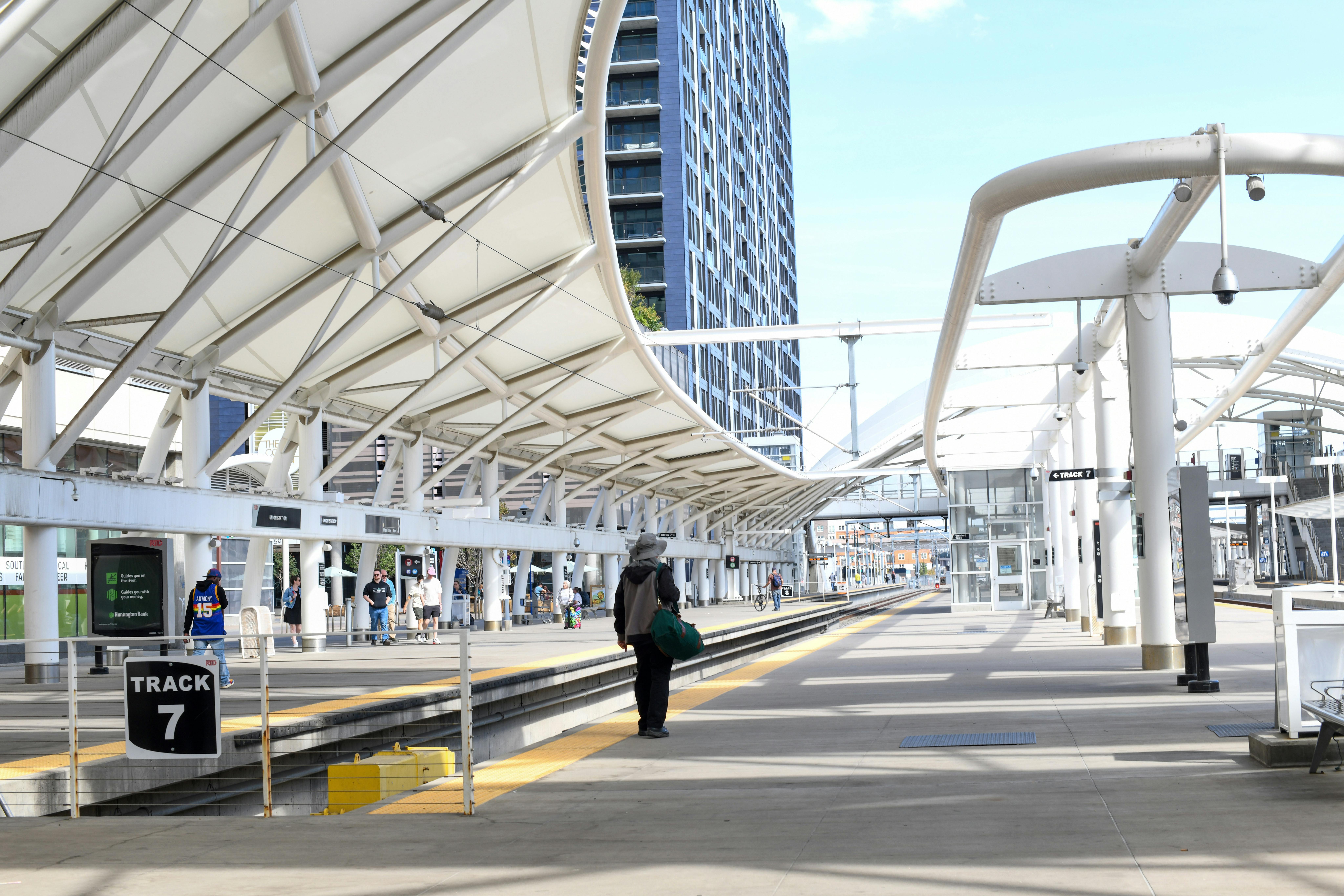THE FULL STORY
Denver’s approach to reducing transportation expenditures as a percentage of household income stems from an integrated focus on affordable, accessible, and sustainable transportation options.
Like Tampa Bay, transportation is a significant expense for Denver households. On average, residents spend over $12,700 each year on transportation, with most of this cost tied to owning and maintaining personal vehicles. In contrast, public transit and other alternative transportation options are far more affordable, with the average annual cost for public transit services in Denver being just $700.
Denver’s Regional Transportation District (RDT) serves eight counties and 3 million residents across the Denver metro area and has made strides in providing cost-effective transit options. The Denver metro area covers 2,342 square miles, and RTD supports this vast region with nearly 67 million vehicle revenue miles and 617 million passenger miles each year. From the 2025 RCR, Tampa Bay has only 7.70 transit vehicle revenue miles per capita, compared to Denver’s rate of 16.95.
RDT stewards over 170 bus routes, including local and regional options, and ten rail lines connecting 113 miles of service and 96- Park-n-Ride. This comprehensive network helps lower household transportation expenses by offering alternatives to car ownership.
BUS AND RAIL
The Flatiron Flyer (bus rapid transit (BRT)) continues to expand its service corridor significantly. The 18-mile express service linking Boulder and Denver gave a new option to traverse U.S. 36, which has upwards of seven million cars per year and notoriously congested traffic. Leading up to the pandemic, the Flatiron Flyer recorded an annual ridership of 3.3 million, over 9,000 daily rides.
In recent years, legislation was passed that permits buses to drive on highway shoulders to bypass traffic, and the state’s Department of Transportation worked to add express lanes and signal priority to keep the buses on schedule.
Since light rail operates at just $0.75 per passenger mile, and their bus service costs $1.23 per mile, these are cost-effective measures that help reduce household transportation expenditures.
The continued improvements to bus connectivity and accessibility make it a meaningful asset that compliments commuter and light rail.
POLICIES
To help reduce vehicular traffic and encourage more sustainable travel options, a wide assortment of incentive programs and policies were introduced or expanded in the years leading up to 2023 that greatly enhanced alternative transportation options, including Colorado Senate Bill (SB 260), which provides new, long term and stable transportation funding to Colorado, and is forecasted to produce $5.3 billion in infrastructure investments over the next 10 years based on fuel-consumption fees.
In 2023, Colorado House Bill 22-1026 was passed. This bill allows employers to claim a refundable income tax credit of 50% of their spending to provide employees with alternative transportation options. These benefits include free or subsidized transit passes, micromobility credits, car-sharing access, and vanpool or carpool services. The bill also supports Guaranteed Ride Home programs, ensuring employees can get home quickly in emergencies, encouraging broader adoption of non-car-based commuting options.
BIKE-FRIENDLY EFFORTS
Denver’s e-bike rebate program has also been a success, further promoting alternative transportation. Launched in May 2022, the program provides vouchers to reduce the cost of purchasing e-bikes. As of July 2023, more than 6,100 vouchers have been redeemed, with nearly half going to lower-income residents. This initiative helps make cycling a more accessible, sustainable, and affordable mode of transportation, complementing the city’s other green mobility efforts.
In addition to the e-bike program, Denver has made significant investments in its bicycle infrastructure. These projects align with the goals outlined in the Denver Moves: Downtown plan, a comprehensive vision for enhancing mobility in the downtown area.
In May 2023, the city celebrated the completion of 137 miles of new bike lanes—surpassing its original goal of 125 miles set in 2018. These efforts are designed to make cycling a more comfortable and viable option for commuters, reducing car dependency and traffic congestion.
CONNECTIVITY AND FEE REDUCTION
In 2023, DOTI expanded the Denver Connector, a free city-funded micro transit program that supported 100,000 riders in June 2023. This ride-share service aims to make it easier for residents to reach neighborhood destinations and connect to regional transit services provided by RTD.
Denver’s Zero Fare for Better Air campaign, another significant initiative, provided free transit service across the RTD throughout July and August. This program, funded by Colorado Senate Bill 22-180 in partnership with the Colorado Energy Office, aimed to encourage greater use of public transit during the peak summer months to help ease congestion.
Another successful program is Zero Fare for Youth, which allows young residents to travel for free and reduces the financial burden on families.
Denver’s comprehensive strategy to expand and enhance public transit, legislative support, and infrastructure investments showcases how urban areas can reduce transportation costs and improve sustainability. Through innovative programs like FasTracks, e-bike rebates, and business tax incentives, Denver sets a model for regions looking to address similar mobility challenges.
